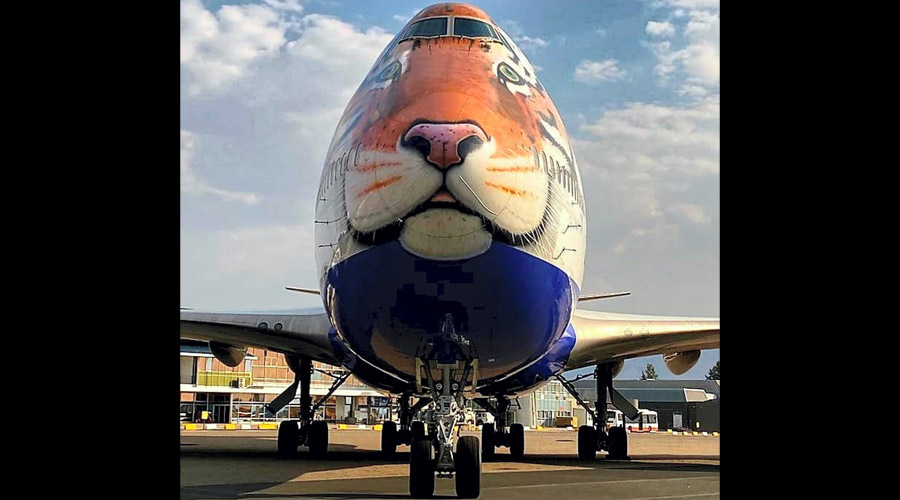A specially customised B747 jumbo jet has arrived here in the Namibian capital to bring eight cheetahs to India's Kuno National Park in Madhya Pradesh where they will be re-introduced after the wild cats faced extinction in the 1950s.
"A special bird touches down in the Land of the Brave to carry goodwill ambassadors to the Land of the Tiger," the High Commission of India in Windhoek tweeted on Wednesday.
Eight cheetahs, five female and three male, will be brought to Jaipur in Rajasthan on September 17 in the cargo aircraft as part of an inter-continental translocation project.
They will then be flown from Jaipur to their new home -- Kuno National Park in the Sheopur district of Madhya Pradesh -- in helicopters.
Prime Minister Narendra Modi will release these cheetahs into the Kuno National Park in Madhya Pradesh on his birthday on September 17.
The aircraft bringing the cheetahs to India has been modified to allow cages to be secured in the main cabin but will still allow vets to have full access to the cats during the flight.
It has been painted with the image of a tiger. The aircraft is an ultra-long range jet capable of flying for up to 16 hours and so can fly directly from Namibia to India without a stop to refuel, an important consideration for the well-being of the cheetahs.
Cheetah will have to spend their entire air transit period empty stomach, a senior Indian forest department official said on Tuesday.
Such a precaution is needed as a long journey may create nausea-like feelings in animals leading to other complications.
The large carnivore got completely wiped out from India due to their use for coursing, sport hunting, overhunting and habitat loss. The government declared the cheetah extinct in the country in 1952.
The last spotted feline died in 1948 in the Sal forests of Chhattisgarh's Koriya district.
Starting in the 1970s, the efforts of the Indian government to re-establish the species in its historical ranges in the country led to the signing of a pact with Namibia, which donated the first eight individuals to launch the Cheetah reintroduction programme on July 20 this year.











